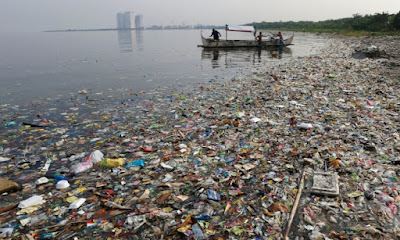MRF = Mechanical Recovery Fallacy?
 Greetings,
Greetings,Following on from my previous post about a local manchester waste boss making a stand against deceptive waste management companies, I thought I should probably do something to explain what the real issue is and why we are so incensed about it.
There is quite a comprehensive article on Wikipedia which explains in detail what an MRF is and how it operates. In effective it is a facility which uses mechanical procedures to sort co-mingled recyclates into single waste streams, which in principal is a good thing as it allows for co-mingled (i.e. unsorted) waste to be collected which simplifies waste collection for the waste producer. However the problem is that it is an inherently inefficient system, as not all of the material collected can be sorted by the MRF correctly and there is still a considerable amount of material which has to be sent to landfill due to issues like cross-contamination (to produce high quality secondary materials the recyclate needs to be as clean as possible).
It is due to these operational inefficiencies that WRAP published a report in July last year advocating segregated kerbside collections as the most efficient method of domestic recyclate collection.
The main issue with using a MRF for recycling business waste is that you have no guarantee that the waste you send to be recycled actually will be. As far as I am concerned, if you don't know for definite that your company's waste is being recycled, you may as well be sending it directly to landfill! The very valid concern raised in my previous post is that whilst MRF-end recycling services provide an 'easier ' experience for waste producing businesses and their employees, the reality is that from a responsible, environmental and duty of care perspective you have no idea what is actually going to happen to your waste.
If we can all get used to recognising the value (and in some cases, toxicity) in everyday resources by establishing simple segregation systems in our home and work places and then using them consistently, not only will we be behaving more responsibly, but we can show the way, encouraging others to do the same and contributing to a 'virtuous circle' in turn helping our economy and the environment. Winner!
Onwards & upwards!
Lucy.
EMERGE 3Rs

This comment has been removed by a blog administrator.
ReplyDelete